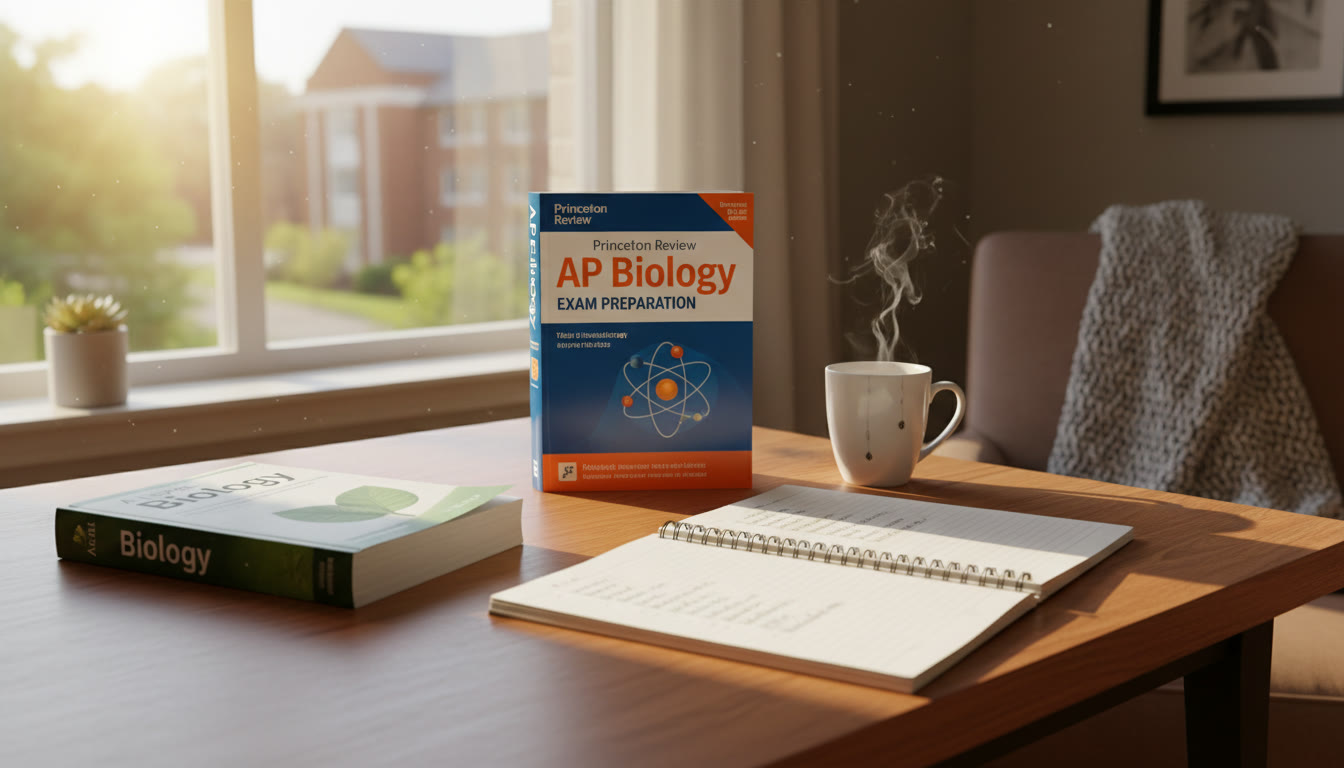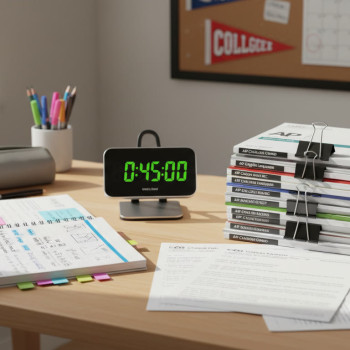Thinking About Moving From A Levels To AP Languages? Welcome — Let’s Talk
Making the jump from A Level languages to Advanced Placement (AP) courses can feel like stepping into a slightly different world — familiar, but rearranged. Whether you’re a student aiming to impress American colleges, a parent helping navigate the system, or a school counselor supporting a bilingual learner, this blog walks you through registration, the cultural differences between the systems, and practical strategies to thrive.

Why Students Move From A Levels To AP — And Why It Makes Sense
Students change exam systems for many reasons: relocation, college planning, curriculum preference, or a desire to earn college credit in the U.S. Both A Levels and AP courses reward deep language knowledge, but they emphasize different skills. Understanding those differences helps students adapt faster and keep momentum.
Snapshot Comparison: What A Levels Emphasize vs AP
Here’s a compact comparison to set expectations. Think of it as a map so you know where your strengths transfer and where you’ll need to build new skills.
| Feature | A Levels | AP (Language) |
|---|---|---|
| Curriculum Depth | Often deep, text-focused, literary and linguistic analysis. | Broad skills-based approach: interpretive, interpersonal, presentational. |
| Assessment Style | Essays, long text analysis, coursework (depending on board). | Multiple-choice, free-response tasks, oral components emphasized in some AP languages. |
| College Credit | Accepted mainly in UK/CW universities; advanced standing varies. | Widely accepted for credit/placement at many U.S. colleges, depending on score. |
| Focus | Language plus literary and cultural studies. | Real-world communication, cultural comparison, and performance tasks. |
How To Register For AP Language Exams — A Clear Step-by-Step Guide
AP exam registration is straightforward in principle, but the details matter: deadlines, school vs. test-center registration, and payment options. Here’s a clear roadmap so you don’t miss a beat.
Step 1: Confirm Which AP Language You Want
AP offers a number of language exams (for example, AP Spanish Language and Culture, AP French Language and Culture, AP German Language and Culture, and AP Chinese Language and Culture). Each has a slightly different balance of skills — but the registration process is the same: choose the exam that matches your study and target college credit.
Step 2: Register Through Your School (Preferred) or a Test Center
- Most students register for AP exams through their high school’s AP coordinator. Schools set internal deadlines earlier than the College Board’s final dates, so check with the school office as soon as possible.
- If your school doesn’t offer the exam, contact nearby schools or authorized test centers. Private registration is possible but requires more lead time.
Step 3: Know the Deadlines and Fees
Deadlines for ordering exams and paying fees vary by school and year. Financial aid is available for eligible students. Ask your AP coordinator what the internal deadlines are, and don’t wait until the last minute — some language exams have limited seats at alternate centers.
Step 4: Prepare Required Materials
- Bring a government-issued photo ID if required by the test center.
- Bring pencils, pens, and a permitted calculator (if applicable — not usually needed for language exams).
- Review the specific format: multiple-choice sections and free-response tasks, sometimes including an oral or recorded performance component depending on the year and exam format.
Cultural Comparison: How Language Teaching Differs Between A Levels And AP
Culture shapes pedagogy. A Levels come from a British tradition that often privileges literary, historical, and grammatical depth. AP — designed primarily for U.S. high schools — leans toward communicative competence and cultural context that’s immediately usable.
Classroom Tone And Expectations
- A Levels: Often seminar-style text analysis, formal essays, and close readings. Expect homework that involves deep engagement with set texts and historical contexts.
- AP: Emphasis on using the language in practical situations — speaking, listening, writing for real audiences. Cultural comparison is explicit: students compare target-language communities with their own.
Materials And Resources
A Levels may rely heavily on canonical texts, long-form readings, and grammar-focused exercises. AP materials include thematic units, authentic audio/video resources, and performance tasks that simulate real-world interactions.
Assessment Of Culture
Both systems measure cultural knowledge, but AP usually frames culture as part of communication: how do speakers express ideas about family, technology, migration, or food? A Levels sometimes ask for historically situated literary interpretations. Knowing this helps you tailor study time to the mode of thinking each exam expects.
Study Strategy: Transferable Strengths From A Levels And What To Build
If you’ve done A Levels, you already have a huge advantage: strong reading skills, grammar knowledge, and analytical habits. Here’s how to convert that into AP success fast.
What To Keep Doing
- Continue deep reading and note-taking — A Level training sharpens textual analysis that helps with AP interpretive tasks.
- Preserve discipline around deadlines and extended writing — practice timed responses to simulate exam conditions.
What To Add Or Strengthen
- Oral fluency: AP places higher weight on speaking and presentational tasks. Add regular conversational practice — language partners, tutors, or recording yourself.
- Integrated skills: Practice tasks that combine reading, listening, and writing. Work on synthesizing information from multiple sources in a timed setting.
- Templates and time management: Free-response sections reward clear structure. Prepare outlines and timed workflows.
Sample Weekly Study Plan (6 Weeks Before Exam)
| Day | Focus | Duration |
|---|---|---|
| Monday | Listening comprehension + note-taking practice | 60–90 minutes |
| Wednesday | Speaking practice (recorded or partner) | 45–60 minutes |
| Friday | Reading passage analysis + timed free-response | 90 minutes |
| Weekend | Vocabulary review and cultural comparison essay | 120 minutes |
Concrete Tips For The AP Language Exam — What Examiners Look For
Each AP language exam assesses interpretive, interpersonal, and presentational modes. Examiners look for accuracy, range, coherence, and cultural awareness. Here are concrete, exam-ready tips.
For Multiple-Choice
- Skim for main ideas first; annotate quickly to capture tone or purpose.
- Eliminate obviously wrong options; look for paraphrase traps that change nuance.
For Free-Response Essays
- Structure matters: clear introduction, two to three supporting paragraphs, and a concise conclusion.
- Use specific cultural examples (from authentic sources or personal experience) to show depth.
- Balance grammatical accuracy with fluency — a few minor errors won’t sink a convincing argument.
For Speaking Tasks
- Practice short, natural answers with transition phrases and cultural references.
- Use a range of tenses and vocabulary, but prioritize clarity and organization under time constraints.
How Parents Can Help Without Taking Over
Support that empowers works best. Parents can create consistency, provide logistical help, and encourage productive habits without turning into the tutor.
Practical Ways to Support
- Help manage registration deadlines and ensure the student has a quiet test-day plan.
- Create a steady study environment and a distraction-free routine during the countdown to exams.
- Encourage small wins — celebrate practice-test improvements rather than raw scores.
Using Personalized Tutoring To Fill The Gaps
Many students benefit from one-on-one guidance to bridge differences between A Levels and AP. Personalized tutoring can target weak skills, provide feedback on speaking, and build confidence under timed conditions.
If you consider tutoring, look for services that offer tailored study plans, expert tutors who understand both systems, and tools that track progress. For example, Sparkl’s personalized tutoring blends 1-on-1 guidance, tailored study plans, and data-driven insights to help students target specific AP tasks and improve faster — especially useful during the final weeks before the exam.
Real-World Examples: How Students Successfully Transitioned
Stories help make strategy concrete. Here are two composite examples (based on common real student paths) to show how small shifts produce big gains.
Case A — From Literary Depth To Real-World Fluency
Sam had excellent A Level French textual analysis but limited speaking practice. With targeted tutoring focused on oral presentations and integrated tasks, Sam moved from a hesitant speaker to someone who could deliver a clear 90–120 second presentational response. Tutors helped by recording mock tasks, providing feedback on pronunciation and connectors, and assigning weekly culture-focused speeches.
Case B — Turning Grammar Strength Into Exam Speed
Aisha’s grammar and essay skills were top-notch from A Levels, but she needed speed for AP multiple-choice sections. A timed-practice regimen, paired with strategy sessions to recognize distractor patterns, improved her pace without sacrificing accuracy.
Exam Week: A Practical Checklist
- Confirm exam date and arrival time with your AP coordinator at least one week before.
- Prepare acceptable ID, pencils, erasers, and a watch to manage time (phone stowed).
- Sleep well and eat a steady breakfast; light exercise the morning of the test can sharpen focus.
- Do a short warm-up: 10–15 minutes of target-language reading or listening to settle into the language mindset.

After The Exam: Next Steps And Keeping Momentum
Whatever your score, language study is cumulative. If you earn college credit, celebrate and plan your next language goal. If you want to improve for a retake or for future courses, analyze your score report to see which skill areas need attention.
How To Use Score Reports Effectively
- Identify weak modes (interpretive, interpersonal, presentational) and focus future study on those areas.
- Use targeted practice — for speaking, join conversation groups; for listening, consume authentic media daily; for writing, produce timed essays regularly.
Final Thoughts: Be Strategic, Stay Curious, And Remember Why You Started
Switching from A Levels to AP language courses is a smart move for many students — it opens doors to U.S. college credit, develops practical communication skills, and broadens cultural perspective. The key is to be strategic: map your current strengths, target gaps, use purposeful practice, and ask for the right support when needed.
Personalized tutoring (like the 1-on-1 guidance and tailored study plans offered by Sparkl) can accelerate progress by focusing on the exact tasks the AP exam demands: synthesized reading, natural speaking, and confident timed performance. Paired with your existing A Level strengths, a focused, well-paced approach can turn uncertainty into achievement.
Above all, keep the curiosity alive. Language exams measure performance, but language itself is a living bridge to people and cultures. Studying beyond the test — through films, conversations, travel, or music — not only improves scores, it enriches life.
Quick Checklist Before You Go
- Confirm AP exam choice and registration route (school vs. test center).
- Set a six-week study plan prioritizing speaking and integrated skills.
- Practice timed tasks weekly and record speaking for feedback.
- Consider focused tutoring for targeted gains and accountability.
- Stay curious: mix exam drills with authentic cultural exploration.
Ready to make the transition? Keep a steady rhythm, lean into personalized support when needed, and remember — you’re building a skill that reaches far beyond any single exam.















No Comments
Leave a comment Cancel